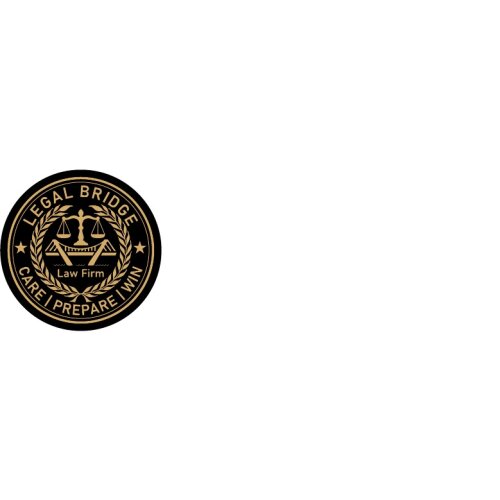Best Asylum Lawyers in Pakistan
Share your needs with us, get contacted by law firms.
Free. Takes 2 min.
Or refine your search by selecting a city:
List of the best lawyers in Pakistan
About Asylum Law in Pakistan
Asylum laws in Pakistan are concerned with providing protection to individuals who have fled their home countries due to a well-founded fear of persecution based on race, religion, nationality, membership in a particular social group, or political opinion. Pakistan is not a party to the 1951 UN Convention relating to the Status of Refugees nor its 1967 Protocol. However, it provides temporary protection to asylum-seekers, mostly under the mandate of the United Nations High Commissioner for Refugees (UNHCR). The process is often challenging, given the lack of formal legislation directly dealing with refugees and asylum-seekers.
Why You May Need a Lawyer
Navigating asylum-seeking in Pakistan can be complex due to limited legal frameworks and administrative procedures. Common situations where an individual might seek legal assistance include:
- Understanding legal rights and obligations in the asylum process.
- Filing and managing asylum applications with the UNHCR or other relevant bodies.
- Dealing with issues related to detention, deportation, or legal status.
- Appealing decisions and handling rejections of asylum claims.
- Ensuring family reunification and other related humanitarian concerns.
Local Laws Overview
Despite the absence of comprehensive national refugee legislation in Pakistan, there are certain key aspects to consider:
- The key authority involved in handling asylum issues is the UNHCR, which conducts refugee status determination (RSD) processes.
- Asylum seekers do not have explicit legal protection under Pakistani law, which can result in uncertainty and limited rights.
- The Foreigners Act, 1946, and the Exit from Pakistan (Control) Ordinance, 1981, are indirectly relevant as they regulate the movement and presence of foreigners and can affect asylum seekers.
- While there is no specific asylum law, humanitarian principles and practices are generally observed under international obligations.
Frequently Asked Questions
What is the role of the UNHCR in the asylum process in Pakistan?
The UNHCR is responsible for conducting refugee status determination and providing protection and assistance to asylum seekers in the absence of comprehensive national refugee laws.
Can asylum seekers work in Pakistan?
There are no specific provisions allowing asylum seekers to work legally. However, they can participate in informal economic activities.
How long does it take to process an asylum claim?
The time for processing can vary and is often long due to limited resources and administrative capacity. Cases can take months to years for resolution.
Are there legal aid services available for asylum seekers in Pakistan?
Some NGOs and legal aid organizations offer support, but services might be limited given the demand and resource constraints.
What documents are required for an asylum application?
Asylum seekers are required to provide identification documents, any evidence supporting their asylum claims, and other necessary forms.
What happens if my asylum application is rejected?
If rejected, individuals can file appeals with UNHCR or, in some cases, seek intervention under humanitarian grounds or other forms of legal recourse.
Can asylum seekers move freely within Pakistan?
While there is no formal documentation allowing it, asylum seekers generally have freedom of movement but may face challenges due to their uncertain legal status.
Is it safe for asylum seekers in Pakistan?
Safety conditions can vary significantly depending on regional stability and local law enforcement practices. Seeking support from community networks and organizations can be beneficial.
How does family reunification work for asylum seekers?
Family reunification is complex and depends on various factors, including the status and policies applied by the UNHCR or other bodies involved in the process.
Is education available for children of asylum seekers?
While there are no formal provisions, children can access informal or NGO-run educational initiatives, although resources might be scarce.
Additional Resources
Several resources can assist asylum seekers in Pakistan:
- UNHCR Pakistan: Provides guidance, assistance, and processing of claims.
- National NGOs and Legal Aid Organizations: Offer limited legal assistance and rights advocacy.
- International Organizations: Entities like International Rescue Committee or Refugee Consortium offer context-specific support.
- Community Support Networks: Local networks that can offer guidance, support, and shared experiences.
Next Steps
If you require legal assistance in seeking asylum in Pakistan, consider the following steps:
- Contact the UNHCR or local NGOs to obtain initial guidance and initiate your asylum process.
- Seek referrals for legal professionals specializing in asylum and immigration law in Pakistan.
- Gather and organize all necessary documentation and personal information relevant to your asylum application.
- Stay informed about any new policies or changes in the asylum process through reputable sources and community networks.
Understanding your rights and engaging with the appropriate resources proactively can help navigate the often complex asylum process in Pakistan.
Lawzana helps you find the best lawyers and law firms in Pakistan through a curated and pre-screened list of qualified legal professionals. Our platform offers rankings and detailed profiles of attorneys and law firms, allowing you to compare based on practice areas, including Asylum, experience, and client feedback.
Each profile includes a description of the firm's areas of practice, client reviews, team members and partners, year of establishment, spoken languages, office locations, contact information, social media presence, and any published articles or resources. Most firms on our platform speak English and are experienced in both local and international legal matters.
Get a quote from top-rated law firms in Pakistan — quickly, securely, and without unnecessary hassle.
Disclaimer:
The information provided on this page is for general informational purposes only and does not constitute legal advice. While we strive to ensure the accuracy and relevance of the content, legal information may change over time, and interpretations of the law can vary. You should always consult with a qualified legal professional for advice specific to your situation.
We disclaim all liability for actions taken or not taken based on the content of this page. If you believe any information is incorrect or outdated, please contact us, and we will review and update it where appropriate.
Browse asylum law firms by city in Pakistan
Refine your search by selecting a city.

















